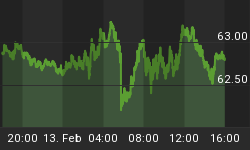Big international banks were eager to jump in on Qatar’s first bond sale in two years—but their eagerness was throttled by a Gulf feud now making them choose sides wherever their wealth loyalty lies—some with mega-gas-rich Qatar, and others with Saudi oil and a close eye on the potential Aramco IPO.
And choosing is a must: Dealing with the Qataris could ruffle the wrong feathers in Saudi Arabia.
Qatar isn’t suffering enough since the Saudis talked the UAE, Bahrain and Egypt into blockading the country over its relations with Iran and alleged (tongue-in-cheek) support of terrorist groups.
The whole point was to cut it off economically from foreign investment; to make it so unattractive that investors wouldn’t want to touch it. Qatar, it would seem, has overstepped the line quite simply because it shares—by geographical fate—the giant South Pars gas field with Iran. Friendly relations are necessary.
Bahrain backed the Saudi blockade request because it is beholden to Saudi Arabia both financially and in terms of security. Egypt jumped on board quickly because the Qataris have in the past supported the Muslim Brotherhood, which Egypt’s new military regime is eager to downsize.
But the Saudi plan hasn’t really worked. Qatar isn’t suffering enough; and when Qatar issued a bond sale that brought in more money than the Saudi one that preceded it by a day, it was further evidence that the Saudis might have been overly ambitious in taking on its tiny but powerful neighbor.

(Click to enlarge)
In the second week of April, Qatar succeeded in raising $12 billion in its first bond sale in two years. That made it bigger than Saudi Arabia’s bond sale right before, and the biggest dollar bond this year from an emerging-market nation. Related: When Will Electric Cars Take Over The Roads?
The Saudis only raised $11 billion, and while there was some talk that the Saudis had timed this in an effort to usurp all the foreign interest before Qatar held its sale, the Kingdom denied that was a factor.
"The size of both the [Qatari] issue and demand will have surprised many, but the combination of Taiwanese demand, the “geo-political” spread over similar-rated investment grade sovereigns and the economy’s robustness to shocks all helped," Simon Quijano-Evans, an emerging-market strategist at Legal & General Investment Management in London, told Bloomberg.
But it’s not just a Gulf club issue: Big international banks have been shoved in the middle of this quagmire and were reportedly forced to choose sides in the dispute when the bond issues arose.
According to the Wall Street Journal, JPMorgan and HSBC pulled out of the Qatari bond issuance in early April for fear of harming lucrative relations with the Saudis—a situation the banks reportedly informed the Qataris about right before the sale.
“The financial sector as a whole is being affected,“ WSJ quoted May Nasrallah, a former Morgan Stanley executive in the Middle East who founded and leads Dubai-based advisory firm deNovo Corporate Advisors since 2010, as saying.
So now banking, too, is divided. While HSBC and JPMorgan have major interest in Saudi Arabia and have been milling around the IPO preparations for Saudi Aramco, other banks are on the other side of this dispute. Deutsche Bank, Barclays and Credit Suisse cater to Qatari shareholders, and as such played a role in the bond issuance.
The Saudis can’t expect to convince everyone to turn their back on Qatar, the largest LNG exporter in the world. This isn’t Bahrain—it’s one of the wealthiest countries in the world with massive natural gas resources.
The bond sale will help shore up funds hammered by the Saudi blockade, and according to the IMF, the Qatari economy is stabilizing. In fact, economic growth is expected to hasten 2.8 percent this year. That’s a tough pill for the Saudis to swallow because it’s double their growth acceleration estimate--even if Qatar’s GDP is only 25 percent that of its oil-rich Gulf neighbor.
Related: The Fintech Revolution Sets Its Sights On Big Banking
In the meantime, other than one-upping the Saudis in the bond sale, Qatar hasn’t really responded with any retaliation, and Washington is still hoping to convince the Saudis to give up the fight.
Big banks might be feeling the pressure to take sides, but Qatar isn’t really being crushed, which has everyone wondering, what comes next?
We may not have to wonder for long. Right after the bond sale, Saudi media reported that the next move would be to turn Qatar into an island by removing the land border between the two countries. More precisely, by excavating a canal and using it for a toxic waste dump.
By Tom Kool for Safehaven.com
More Top Reads From Safehaven.com:

















